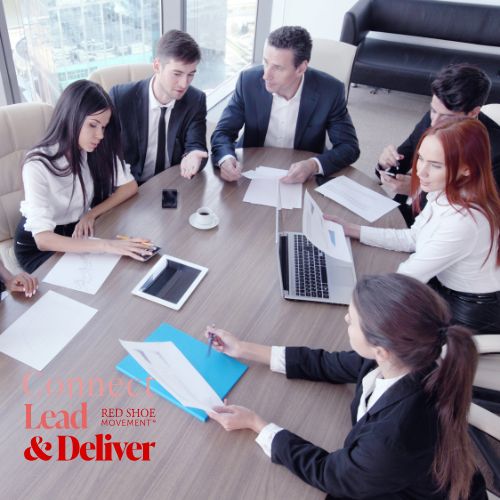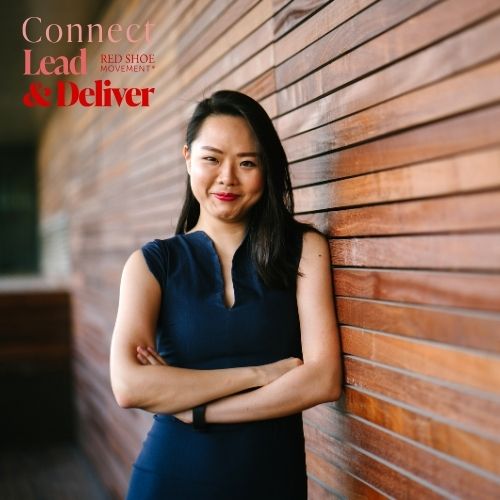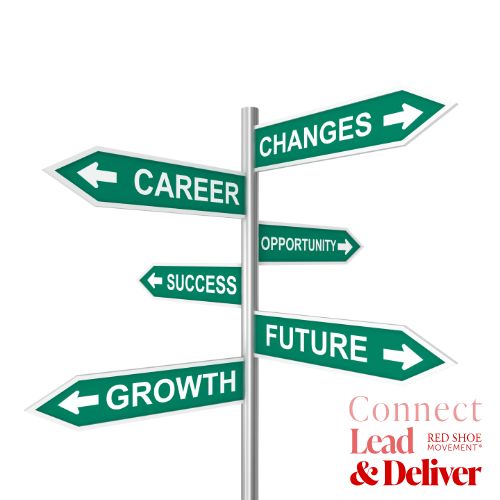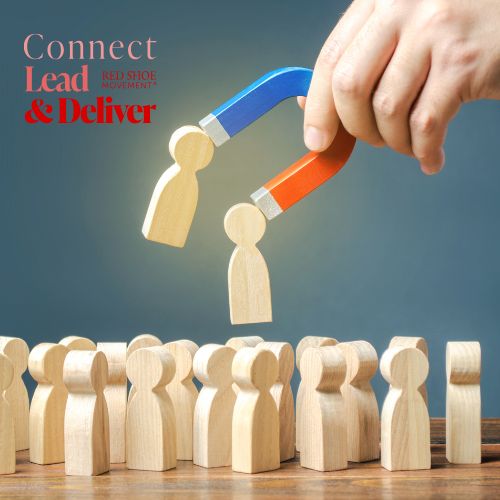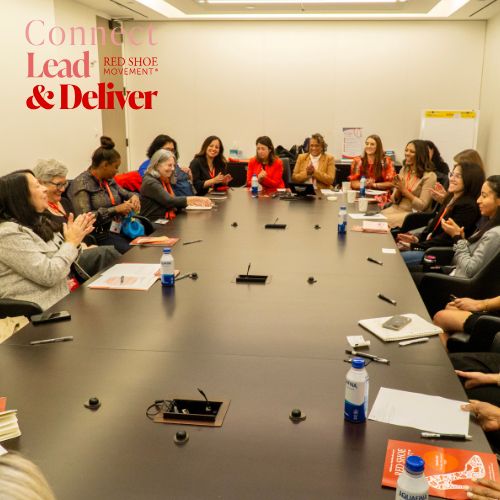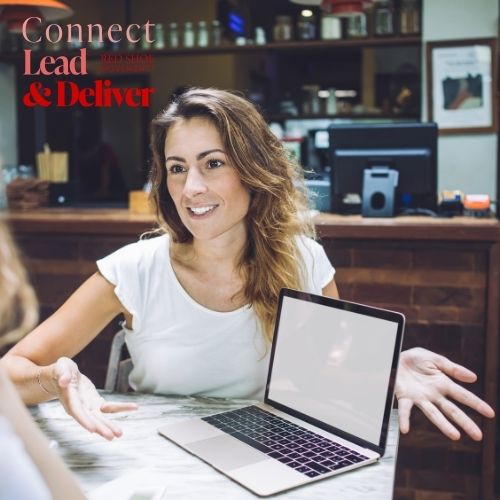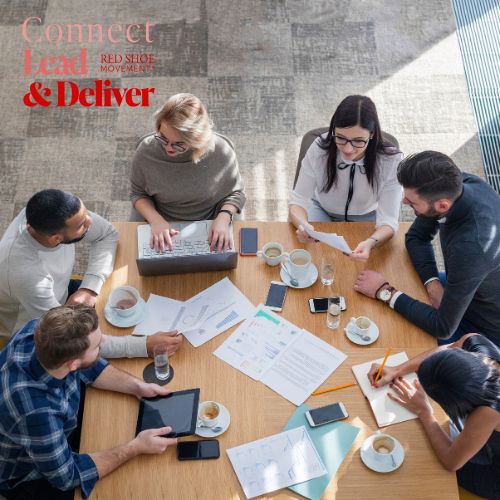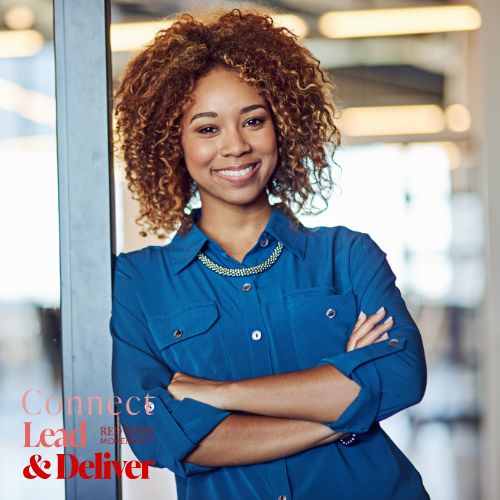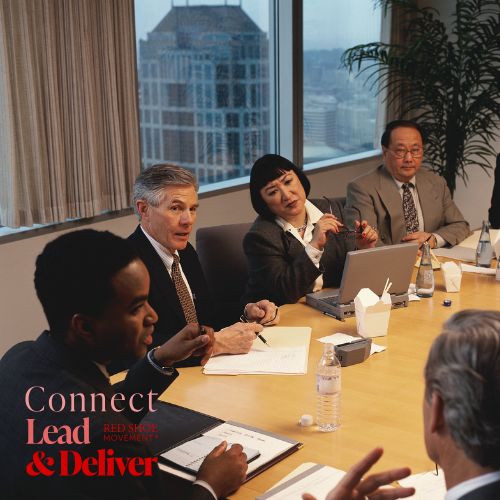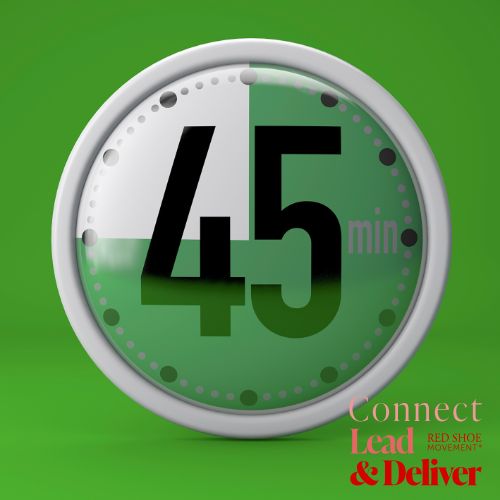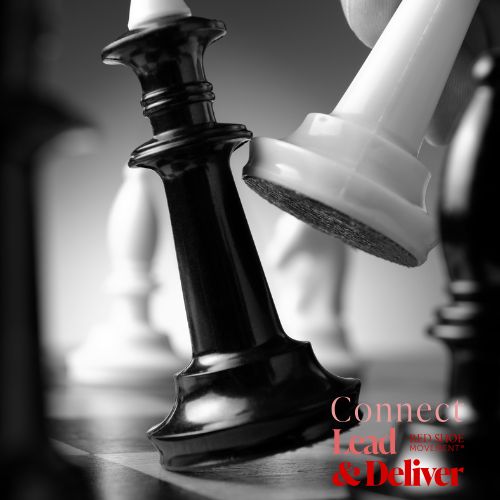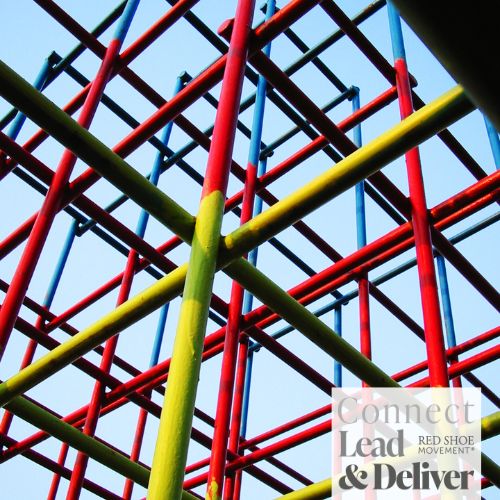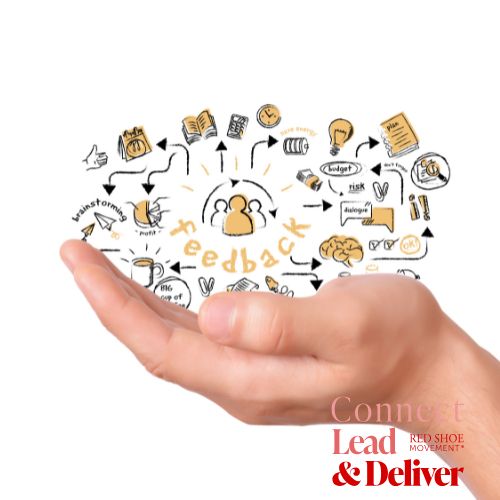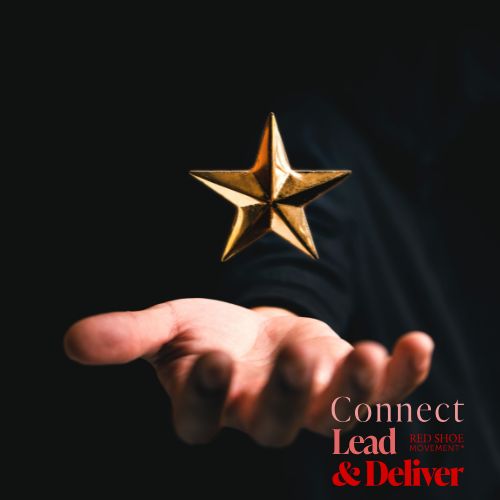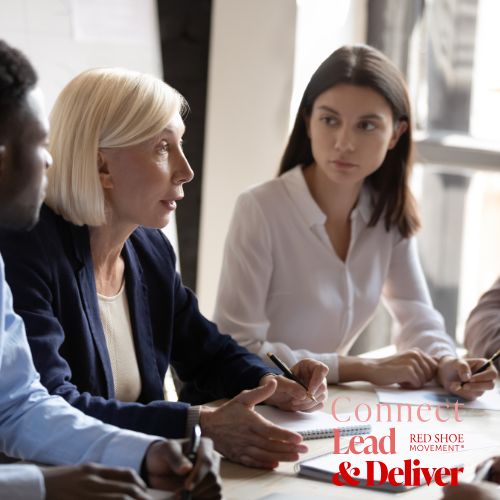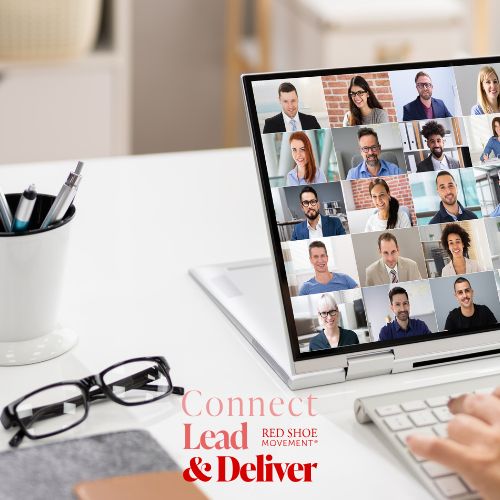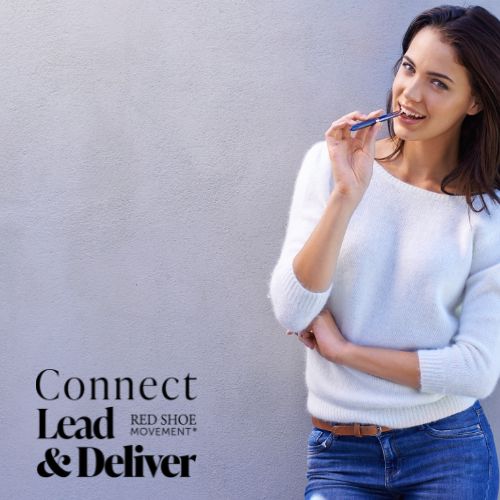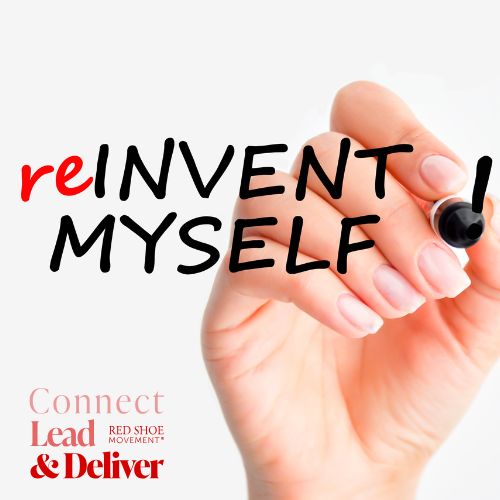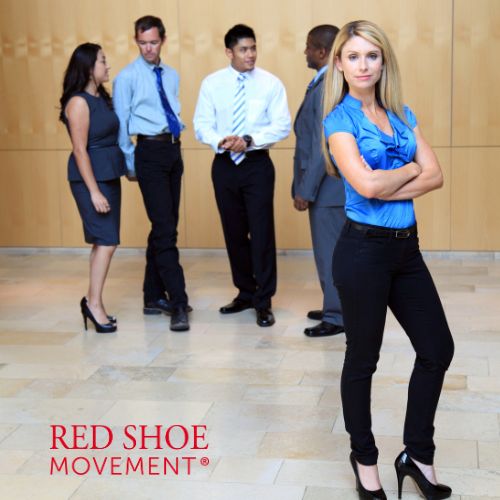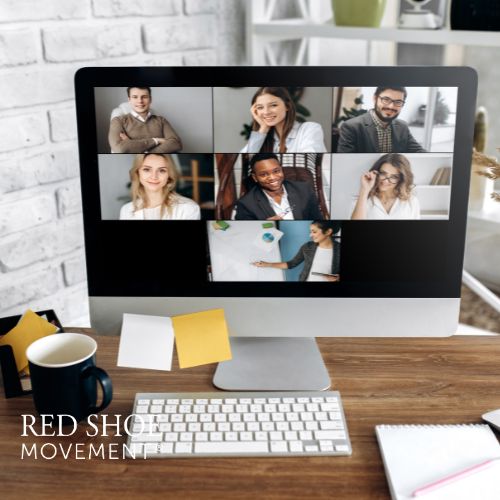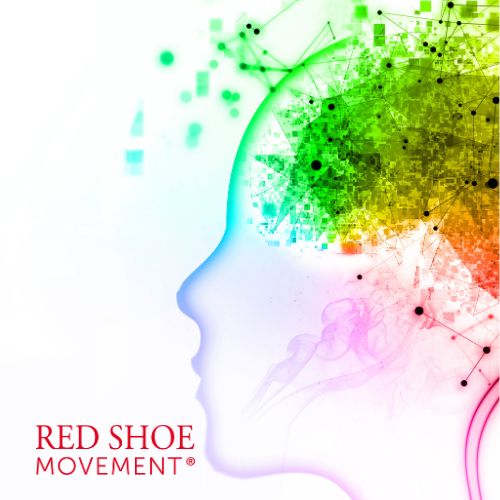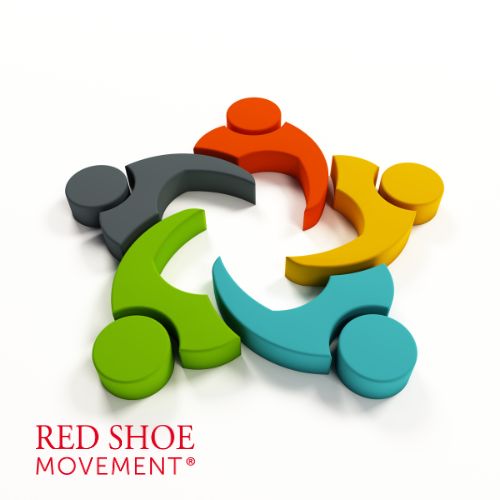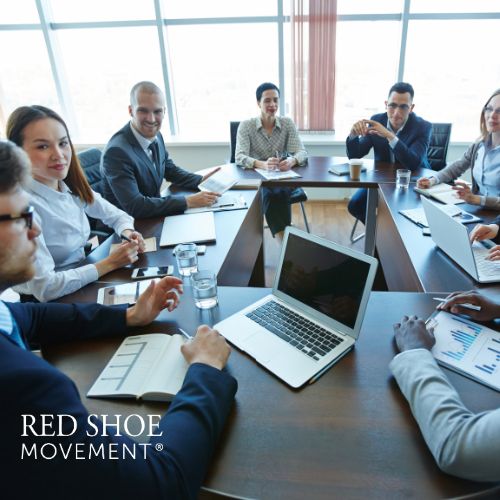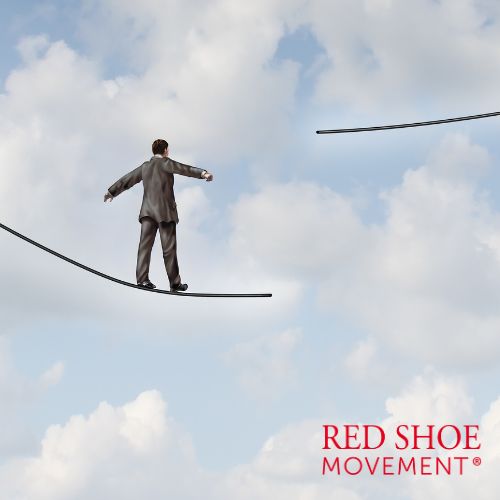Judith McKenna learned the importance of resilience and creating community on her road to becoming one of the Most Powerful Women of 2020, according to both Forbes and Fortune Magazine (in which she has appeared since 2015.) As the president and CEO of Walmart International, McKenna leads over 550,000 associates across 23 countries.
The CEO believes diversity is one of the company’s greatest strengths and is committed to working on matters of equity and inclusion. Building a community where people can not only feel comfortable but grow with and learn from. In 2020, while the world adjusted to COVID-19, McKenna led Walmart International by anticipating and preparing for what was to come during this exceptional crisis.
For relentlessly working towards full inclusion in Walmart International and their many partners around the world, Red Shoe Movement honors Judith McKenna with the 2021 Hall of Fame.
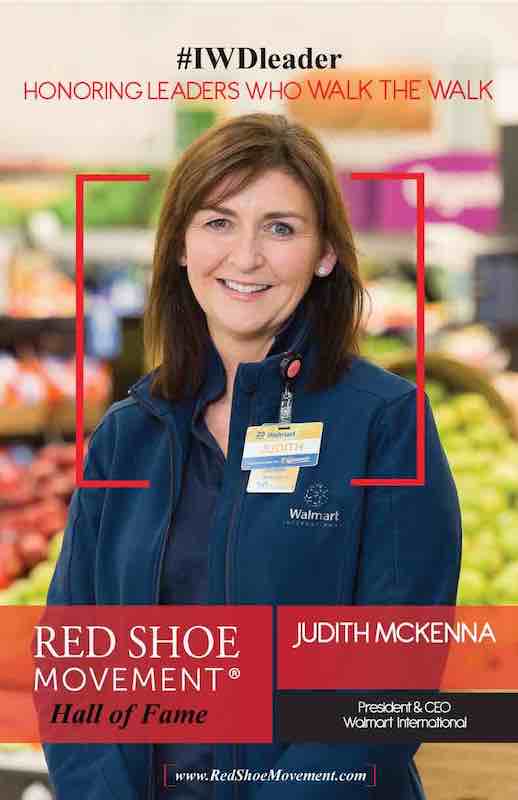
Taking Risks and Knowing How to Bounce Back
Red Shoe Movement — Did you set out to be a CEO from the beginning of your career? What were some of the decisions you made along the way that put you on this career track?
Judith McKenna — I never set out to be a CEO. In fact, I’m not sure what I really set out to be, but I started in finance and as I developed my career, what I thought about was, ‘How do I develop skills that I enjoy using?’ And for me that was about people and I really enjoyed leading teams, and I enjoyed solving hard problems, and I enjoyed thinking about what the future would be and trying to design different ways of getting there. That led me down a path, firstly, to being a CFO.
And then later in my career, having done that for 10 years, I decided I would try something different. I always loved the stores and I loved operations and I had all sorts of different experiences alongside being a CFO. So, I made the switch to being a COO and ultimately that’s led me to the CEO job that I do today.
But the core skills are very similar, and I just expanded different experiences. I’m not the best person to take career planning advice from, but I’m glad I took some risks along the way and I’ve been privileged to do some great and varied jobs along the way.
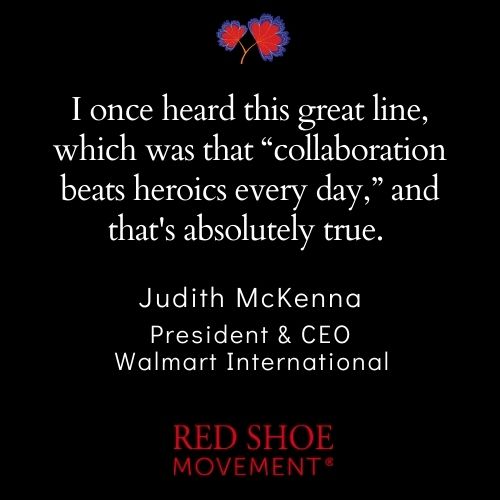
RSM — What would you say are two or three of the most important lessons you’ve learned through the different career changes and challenges that brought you here? Is there anything you’d do differently?
JM — A couple of the most important ones are, number one: it’s all about people, and it’s all about your team, and it’s all about being a team player. You can’t do anything if you try to do it on your own, particularly when you get more senior in the organization. I once heard this great line, which was that “collaboration beats heroics every day,” and that’s absolutely true.
The second one is to build some resilience. Not everything is always going to go your way and you have to have the resilience to be able to bounce back, not take it personally; to think of ways around challenges and not to take knock-backs in a way that puts you off track. “Success isn’t final, and failure isn’t fatal, its courage to continue that counts,” is a good way to think about it.
Are there things I wish I’d done differently? Yes. I still wish I had taken more risks and I wish I had slightly more time off with my first daughter almost 30 year ago!
Pushing for inclusion in Academia- Dr. Alison Davis-Blake- Hall of Fame 2020

Resilience and Creating Community
RSM — What do you think is the importance of building a community within the workplace? How do you create an inclusive environment and ensure equal opportunities for more employees?
JM — This is a really interesting question, because we don’t often talk about building a community but of course that’s what it is as a lot of us spend more time at work than we do at home. Therefore, creating an environment where people are comfortable being there is absolutely critical. It’s not something that you do just because it’s a ‘nice’ thing to do. You do it because it’s the right thing to do, and actually it gets the best out of people and creates diversity – both diversity of thought and diversity of being – which makes it the best thing from the company’s perspective.
I’ve always said that diversity is our strength, but even as we celebrate what makes us unique, we know that there’s so much that connects us. I have worked in retail for a long time and I can tell you that the passion for creating inclusive environments in our stores and workplace is shared around the world. We’ve long been committed to building inclusive teams, but we know we can do more, and we are.

RSM — You’ve said that resilience is key for modern leaders. How important has this been during a global pandemic? How do you keep a team’s spirits up when things ahead look so uncertain?
JM — I never thought I would be having so many conversations about resilience and hope, but we have seen this year that the ability to bounce back and to be able to see light at the end of the tunnel and help other people see it, too, is so important to what we do as leaders.
And how do we keep up spirits and create positivity? Well, we do a number of tiny noticeable things (we call them TNTs) like Zoom-free Wednesdays, making sure our leaders are talking about and modeling the importance of wellness. And, of course, do some things that are fun – like a Bollywood dancing video! But we are also more structured by making sure everybody understands what their goals are and the part they play in the company, so they have a sense of achievement in everything that we accomplish. We make sure that we celebrate and make people feel valued at every step of the way, but we also give honest and fair feedback so people can improve.
It’s not, however, all about the positives. Sometimes you have to take time to acknowledge the challenges and be happy to talk about them. We ran an “It’s Okay” campaign, which included “It’s okay to not be okay,” to encourage people to speak up and let someone know if they need help. That’s part of resilience, too.
Dissolving the glass ceiling: Cesar Cernuda- Hall of Fame 2020
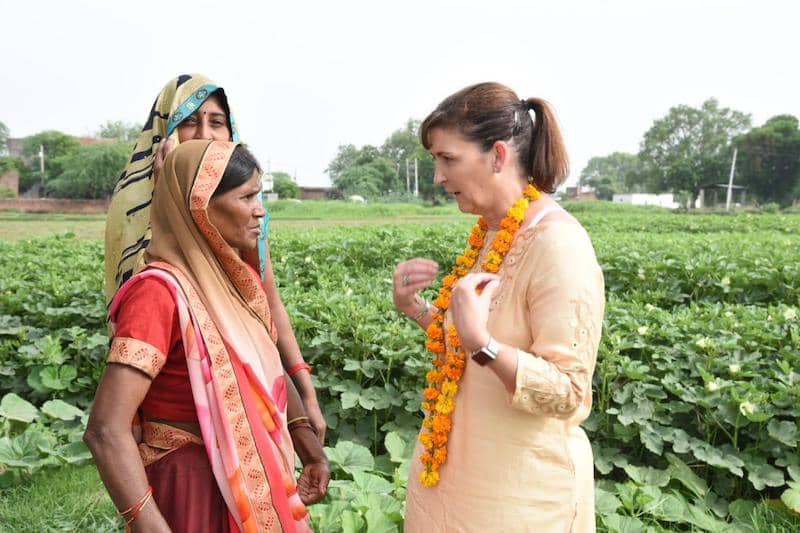
Judith McKenna and Female Empowerment
RSM — Tell us a little about the company’s Global Women’s Economic Empowerment initiative and the role education plays in it.
JM — That initiative began about ten years ago when we committed as a company to sourcing $20 billion from women-owned businesses and to training 1 million women who work on farms, in factories, and in retail. Since then, we have committed much more, and it’s become part of what we do. It’s about investing in people and creating opportunities for them to advance and grow their businesses. I saw this firsthand when I was in India a couple of years ago. We were standing in a field talking to farmers and there were a lot of women farmers there. And I’ll never forget, there was one woman and I asked her through the interpreter, “What can I do for you? What can we do for you?” And she said, “There’s no more you can do for me than you are doing, but what you are doing is helping me get an education for my daughter so she can be like you.” What we are doing is helping women rise to be able to help their families and others rise as well.
RSM — If you could suggest one action that organizations can take to accelerate the representation of women at the top, what would it be?
JM — Make sure people recognize and understand that there is a difference between sponsorship and mentorship. Women are often over mentored and under sponsored. And what I mean by that is mentorship is important because it gives somebody encouragement, but sponsorship is advocating for them in every meeting you’re in, suggesting them for jobs, introducing them to other people, and always having them on your mind as you hear about opportunities around the company. Sponsorship is truly one of the ways that you make a difference.
And companies have to be transparent. As a company, Walmart made a commitment on all of our inclusion and diversity metrics to be transparent, and we publish a report twice a year so that, throughout the organization, everybody can see where we stand. And, actually, that creates the platform for people to then do something about it because they can see where they’re making a difference.
RSM — If you could suggest an action that women could take to accelerate their career growth, what would it be?
JM — Use your voice and know that you’re in the room for a reason. Always do your homework so that you’re ready to speak up. And above all, be yourself – that’s the very best person you can be.
















